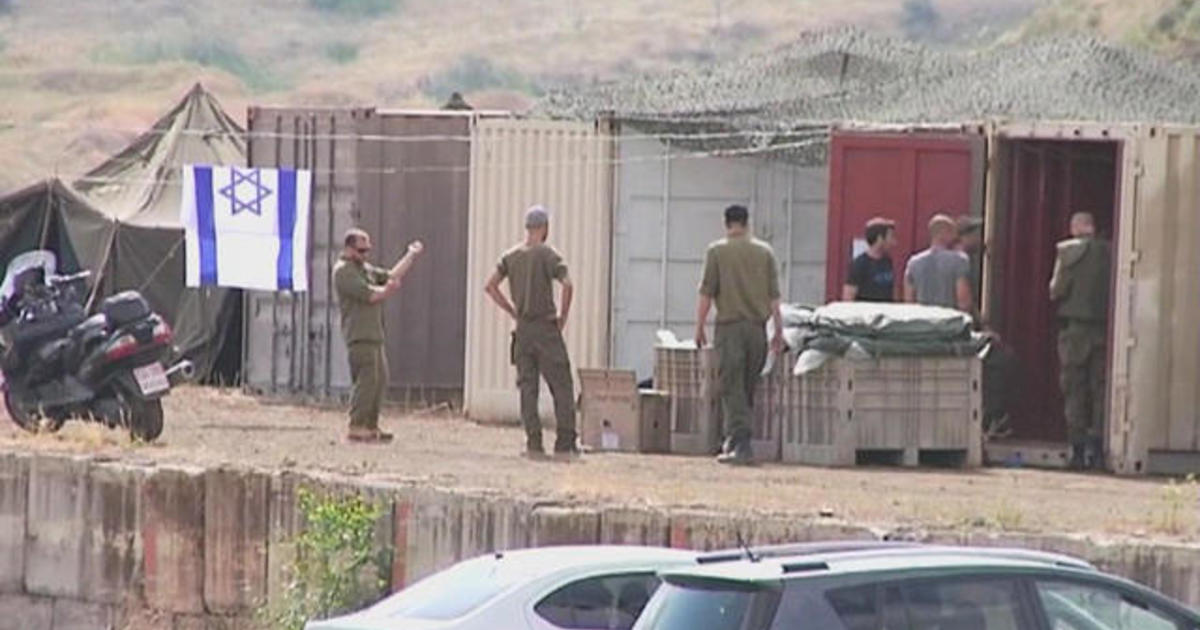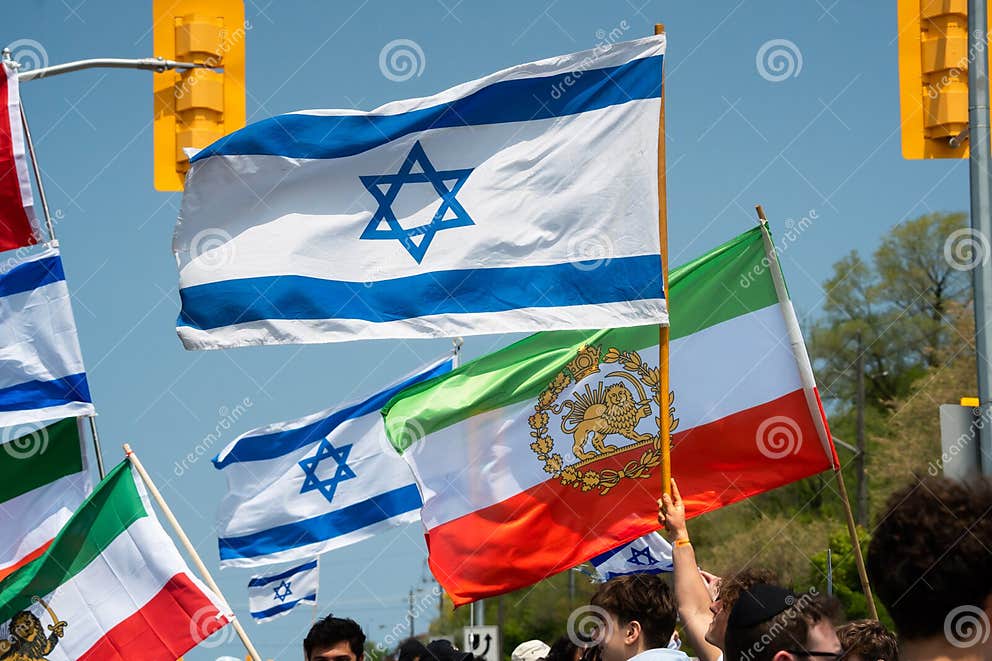Historical Context and Background

The relationship between Iran and Israel is one of the most complex and contentious in the Middle East. It is rooted in a deep historical animosity, fueled by religious, ideological, and political factors. This animosity has manifested in various forms, including proxy wars, diplomatic isolation, and ongoing threats of military action.
Religious and Ideological Factors
The relationship between Iran and Israel is heavily influenced by religious and ideological differences. Iran, a predominantly Shia Muslim country, views Israel as an illegitimate state established on land rightfully belonging to Palestinians. This perception stems from the belief that Jerusalem is a holy city for Muslims and that Israel’s creation dispossessed Palestinians of their rightful homeland. Israel, on the other hand, sees itself as the Jewish homeland, with a historical and religious claim to the land. This difference in perspective has created a deep chasm between the two nations, making it difficult for them to find common ground.
“The Zionist movement is a colonialist movement that aims to establish a Jewish state on the land of Palestine. This is a clear violation of the rights of the Palestinian people and a threat to the peace and stability of the region.” – Ayatollah Ali Khamenei, Supreme Leader of Iran
Political and Economic Factors
Beyond religious and ideological differences, political and economic factors have also contributed to the tension between Iran and Israel. Iran’s support for various Palestinian militant groups, such as Hamas and Hezbollah, has been a major source of friction. These groups have launched numerous attacks against Israel, leading to a cycle of violence and retaliation. Israel, in turn, has carried out military strikes against Iranian-backed forces in Syria and Lebanon, further escalating the conflict. The nuclear program of Iran has also been a major point of contention. Israel views Iran’s nuclear ambitions as a threat to its security and has repeatedly threatened military action to prevent Iran from developing nuclear weapons.
Key Events and Turning Points
- 1948 Arab-Israeli War: Following the establishment of Israel in 1948, Iran, along with other Arab countries, participated in the war against Israel. However, Iran’s involvement was limited, and it did not play a significant role in the conflict.
- 1979 Iranian Revolution: The Islamic Revolution in Iran led to a dramatic shift in Iran’s foreign policy, including its relationship with Israel. The new Islamic Republic declared its opposition to Israel and its support for Palestinian rights. This marked a turning point in the relationship between the two countries, moving it from a period of relative neutrality to one of open hostility.
- 1980-1988 Iran-Iraq War: During the Iran-Iraq War, Israel provided Iraq with intelligence and military support. This further strained relations between Iran and Israel.
- 1990s: Despite the ongoing hostility, there were some attempts at back-channel diplomacy between Iran and Israel. However, these efforts were unsuccessful, and the two countries remained at odds.
- 2000s: The rise of Hamas in the Palestinian territories and Iran’s increasing support for Hezbollah in Lebanon led to a new wave of tensions. Israel launched a series of military operations against these groups, further escalating the conflict.
- 2010s: The development of Iran’s nuclear program and the imposition of international sanctions on Iran brought the two countries to the brink of war. Israel has repeatedly threatened to take military action against Iran’s nuclear facilities.
Current Political and Diplomatic Situation

The relationship between Iran and Israel is characterized by deep animosity and mistrust, rooted in a complex history of conflict and ideological differences. Their diplomatic relations have been severed since 1979, following the Iranian Revolution, and there is no formal communication or engagement between the two countries.
Nuclear Proliferation
The issue of Iran’s nuclear program has been a major point of contention between Iran and Israel for decades. Israel has long viewed Iran’s nuclear ambitions as an existential threat, fearing that Iran’s development of nuclear weapons would destabilize the region and potentially target Israel. The 2015 Joint Comprehensive Plan of Action (JCPOA), an international agreement that aimed to curb Iran’s nuclear program in exchange for the lifting of sanctions, was met with skepticism by Israel, which argued that the agreement did not go far enough in addressing its concerns. In 2018, the United States withdrew from the JCPOA and reimposed sanctions on Iran, further escalating tensions.
Regional and International Implications: Iranian Israeli

The fraught relationship between Iran and Israel has significant implications for the broader Middle East region, influencing regional security dynamics, international alliances, and global energy markets. This complex interplay of interests and tensions has created a volatile landscape, where both countries are engaged in a strategic game of power and influence.
Impact on the Middle East, Iranian israeli
The Iran-Israel rivalry has contributed to a climate of instability in the Middle East. Iran’s support for various militant groups, including Hezbollah in Lebanon and Hamas in Gaza, has been a major source of tension. Israel, in turn, has carried out airstrikes and military operations against Iranian-backed forces in Syria and other countries. This cycle of violence and counter-violence has further escalated tensions and undermined efforts to achieve peace and stability in the region.
- Proxy Wars: Iran and Israel have engaged in proxy wars across the Middle East, supporting different factions in conflicts in Lebanon, Syria, and Yemen. This has resulted in significant loss of life and displacement of populations, destabilizing entire regions.
- Nuclear Concerns: Iran’s nuclear program has been a major source of concern for Israel and the international community. Israel views Iran’s nuclear ambitions as a threat to its security and has not ruled out military action to prevent Iran from developing nuclear weapons. This has raised the specter of a devastating conflict in the region.
- Regional Alliances: The Iran-Israel rivalry has also influenced regional alliances. Iran has strengthened its ties with countries like Syria, Iraq, and Lebanon, while Israel has forged closer relationships with Saudi Arabia, the United Arab Emirates, and other Gulf states. This shifting alignment has created new fault lines in the region and increased the potential for conflict.
International Actors and Mediation
International actors, including the United States, Russia, and the European Union, have played a significant role in mediating or exacerbating tensions between Iran and Israel. The United States has been a key player in the Iran nuclear deal, which aimed to curb Iran’s nuclear program in exchange for sanctions relief. However, the Trump administration withdrew from the deal, leading to renewed tensions and sanctions.
- US Policy: The United States has adopted a policy of maximum pressure against Iran, including imposing stringent economic sanctions. This has exacerbated tensions and contributed to a stalemate in negotiations. The Biden administration has sought to return to the nuclear deal but faces challenges in securing Iran’s compliance.
- Russia’s Role: Russia has been a key ally of Syria and has provided military support to the Syrian government. This has placed Russia in a complex position, as it has also sought to maintain good relations with Israel. Russia’s role in the region has further complicated the Iran-Israel dynamic.
- EU Mediation: The European Union has been actively involved in mediating between Iran and Israel, seeking to promote dialogue and diplomacy. The EU has also been a strong supporter of the Iran nuclear deal and has expressed concerns over the Trump administration’s withdrawal from the agreement.
Potential for Future Conflict or Cooperation
The future of the Iran-Israel relationship is uncertain. The potential for conflict remains high, given the ongoing tensions and the lack of a clear path towards resolution. However, there are also possibilities for cooperation, particularly in areas of shared interest, such as combating terrorism and promoting regional stability.
- Economic Cooperation: There have been limited instances of economic cooperation between Iran and Israel in the past, particularly in the energy sector. However, the political climate has generally prevented any significant collaboration.
- Security Cooperation: Despite their rivalry, Iran and Israel have both expressed concerns about the rise of extremist groups like ISIS. There have been instances of informal cooperation in the past to address this shared threat. However, this cooperation has been limited and fragile.
- Regional Stability: Achieving regional stability would require a fundamental shift in the Iran-Israel relationship. This would necessitate addressing the underlying issues of security concerns, nuclear ambitions, and regional influence. Such a transformation would be a long and challenging process.
Iranian israeli – The tension between Iran and Israel is a complex issue, but sometimes you just need a break from the big picture. Maybe a cute, tiny home like the ones you can find at polly pockets airbnb would be the perfect escape.
Who knows, maybe a little perspective from a different world could help both sides see things a little clearer.
The Iranian-Israeli conflict is a complex issue, with deep historical roots and ongoing tensions. It’s like a cat trying to nap on a wobbly chair, you never know what’s going to happen next. And just like that cat in this song about cats napping on tables and chairs, finding a peaceful solution seems just as elusive.
It’s a delicate dance, navigating the different perspectives and trying to find a way forward.
